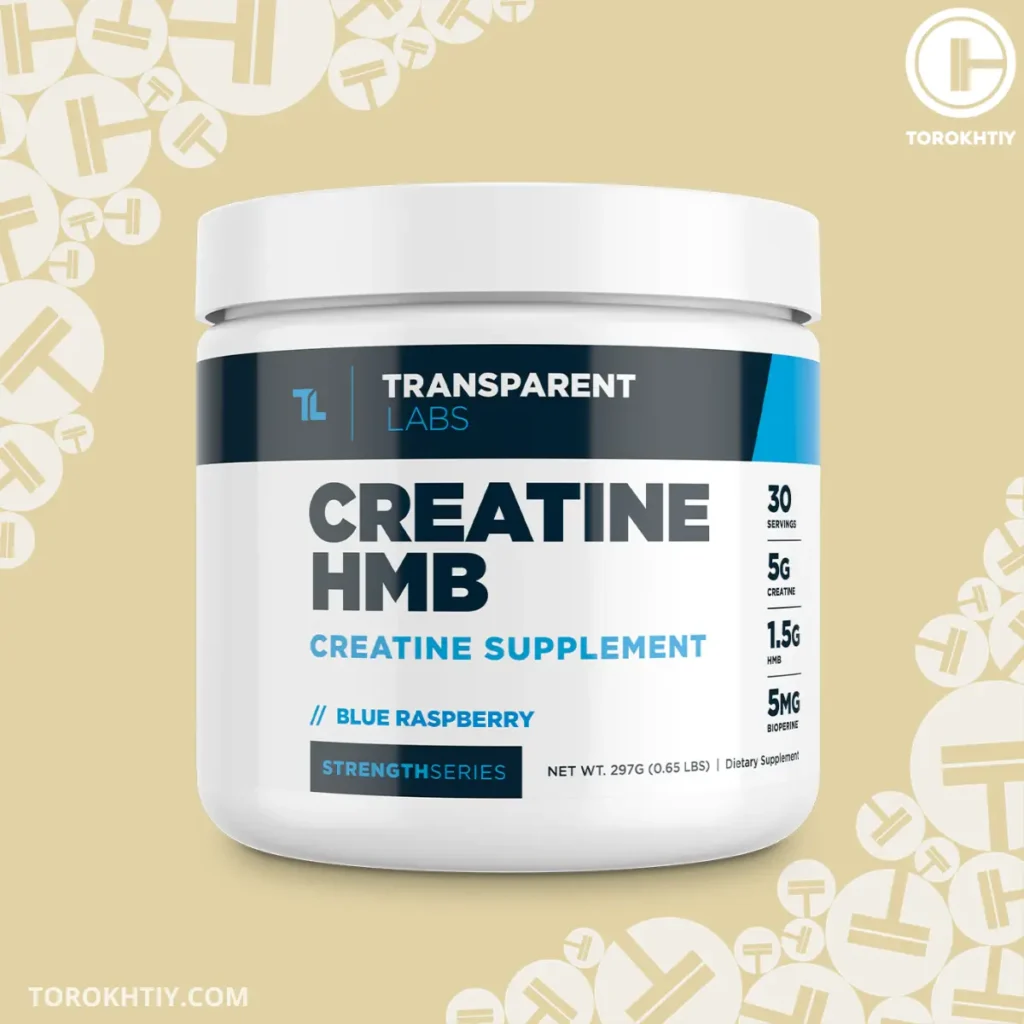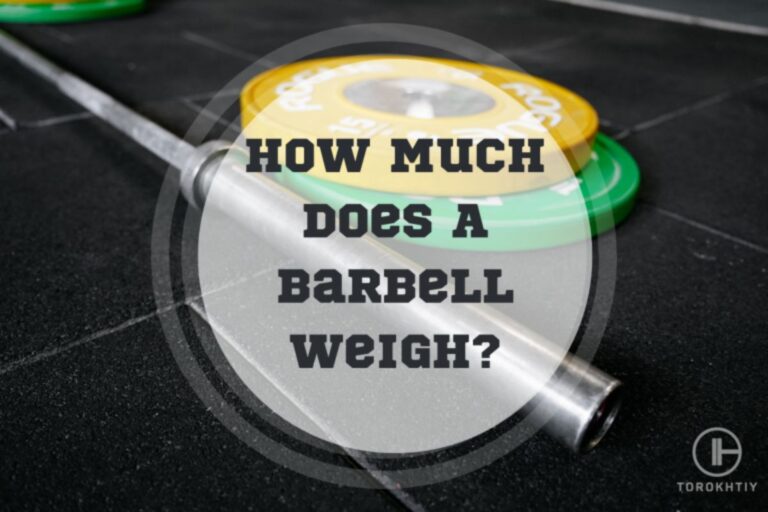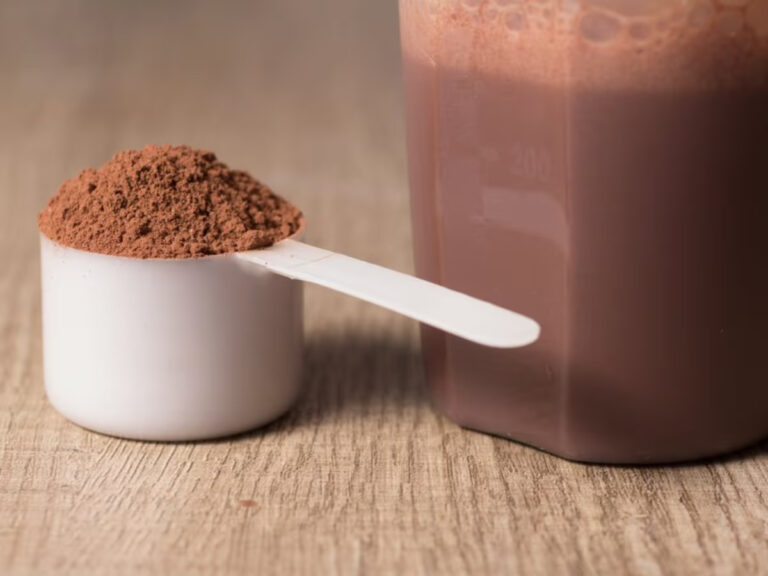Does Creatine Make You Bloated – Myth or Fact?
Creatine is a popular supplement used by athletes and gym-goers alike to enhance their abilities. It offers numerous advantages ranging from, increasing muscle strength, improving exercise performance, to enhancing muscle recovery just to list a few.
However, have you ever thought – does creatine make you bloated or not? In this article, we will explore the topic of creatine and bloating in detail, addressing common questions and providing insights on how to avoid or limit any potential bloating effects.
If you understand bloating as feeling of fullness or GI discomfort. It’s rare – but happens. Creatine causes water retention that sometimes can result in abdominal discomfort. if you are wondering whether creatine makes you bloated or felt bloated before, Good News! It’s avoidable in many cases.

What Is Creatine and What Are Its Benefits?
Creatine is a naturally occurring compound that is found in our muscle cells. It’s often found in food items like fish and red meats and can be consumed orally as a dietary supplement.
Creatine is used to form phosphocreatine, which is important for restoring adenosine triphosphate (ATP) during high intensity exercise. Think about ATP as a body energy “currency”. Creatine plays a vital role in high intensity and short-duration activities.
We will dive deeper to the benefits creatine below and you will have a great understanding of why your body will most likely benefit from this great supplement.
✅ Benefit #1 Improves Exercise Performance
Athlete and fitness enthusiasts consume creatine primarily because of its ability to enhance exercise performance. During short bursts of high-intensity activities, such as weightlifting or sprinting, the body relies heavily on the Phosphagen system for quick energy.
Phosphocreatine serves as an energy buffer, it helps to regenerate ATP rapidly during short bursts of energy thereby improving exercise performance
✅ Benefit #2 Increase Muscle Growth
Creatine has demonstrated the ability to enhance muscle mass to some extent especially when paired with resistance training. This is because creatine encourages an augmentation of water content within the muscle cells (cell swelling) resulting in a more volumized appearance.
Moreover research on man has indicated that short term creatine supplementation shows some anticatabolic actions in some proteins.

✅ Benefit #3 Improved Brain Function
Aside from its direct effects on athletic performance and muscle growth, creatine also keeps your brain at a better performance state. How?
For the brain to function effectively when carrying out a task, it needs more ATP, creatine supplementation causes an elevated level of phosphocreatine in the brain which in turn produces more ATP so the brain can function better.
More so, Studies have linked creatine to cognitive benefits, especially in tasks that require short-term memory, reasoning, and high speed of processing. It has helped to improve memory in elderly individuals. This makes creatine not only essential for athletes but also for individuals seeking cognitive enhancement.
✅ Benefit #4 Creatine Has the Potential of Lowering Blood Sugar
Human body’s ability to regulate and maintain proper blood sugar levels is vital for health and well-being. There is a potential (however speculative) that Creatine can assist in that process by promoting changes in glucose metabolism.
Considering almost no side effects of creatine supplementation if that will somehow become not true, the list of benefits still fully justify adding it into your daily routine.
✅ Benefit #5 Reduced Muscle Fatigue
It can help delay the onset of muscle fatigue, allowing for longer and more intense workouts.
In a study of 5 days involving college aged women who undergo a cycling test. 15 women participated and they were made to ingest a total of 20 g of creatine per day for the whole of 5 days.
When the result was compared with the placebo group, it was concluded 5 days of creatine loading in women is an effective way to delay the onset of fatigue during the cycle ergometry.

Does Creatine Make You Bloated and How to Avoid or Limit Bloating?
One of the major concerns of users of creatine supplements is does creatine cause bloating or not, and how to stop creatine bloating if it actually causes bloating. Creatine does cause water retention which is one of the necessities for it to work effectively and not really bloating as it doesn’t make you gassy or feel any abdominal discomfort.
It’s rare for creatine to cause bloating especially when you take a lower dose of it although some claim otherwise. We hope this session gives you a better understanding of abdominal discomfort and creatine bloating.
Overall, we need to distinguish creatine water retention in your muscles from bloating in a real sense because creatine causes water retention and not abdominal discomfort when taken appropriately.
If you are taking creatine for the first time and you begin with a loading phase (talking about 20-25 grams of creatine for 5-7 days) the chance is high that you can experience bloating. Creatine does cause an increase in water retention which occurs primarily within the muscle cells leading to a volumizing effect.
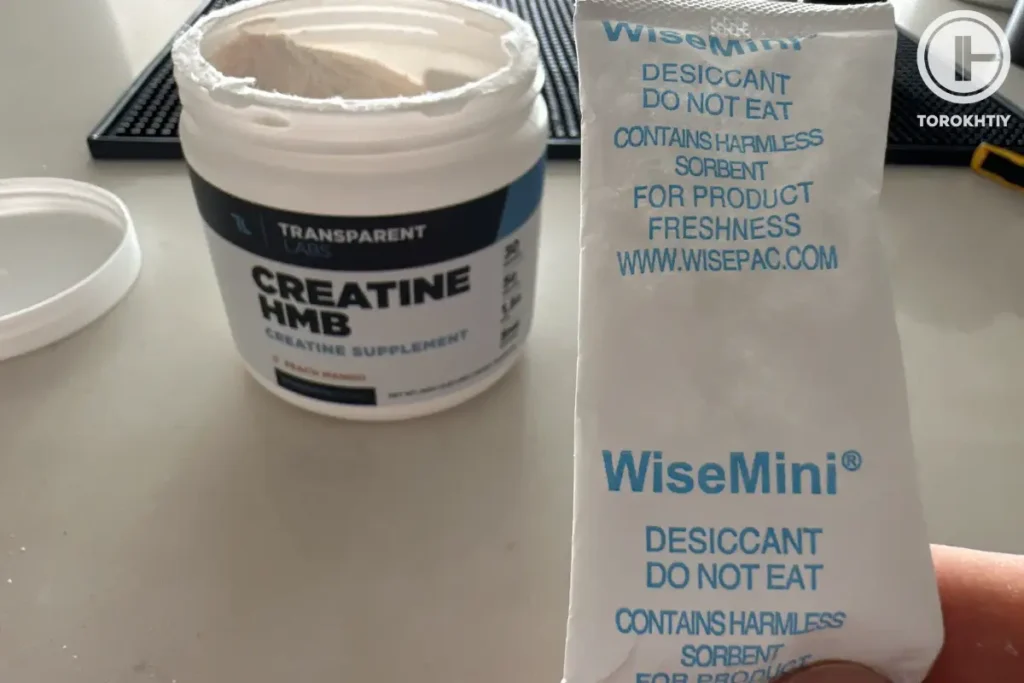
The extra water being retained in your muscles makes them appear fuller. However, there’s no accumulation of gas in the gastrointestinal tract which could make you feel any abdominal discomfort.
BUT… what can possibly happen is that if you decide (or sometimes even with a maintenance dose) to take higher doses of creatine – some of it may not be absorbed and stay in your GI tract.
Because Creatine acts as an osmolyte, it pulls water – normally into your muscles, but now there is not absorbed Creatine – in your tract which will pull water as well and potentially cause some bloating.
Overall, to avoid the bloating effect of creatine caused by the loading phase we need to make sure you absorb what you’re taking. Below are some of the important things to take note of
1. Do Not Take Creatine With a Loading Phase
The loading phase for creatine supplementation is termed as taking about 20-25 grams of creatine daily for about 5-7 days at the onset before proceeding to a maintenance dose. The loading phase is safe and does not cause bloating in some people but causes in others. If you even feel bloated after taking creatine with a loading dose, it’s best you skip the phase.
Although some studies show that the loading phase of creatine supplementation will typically prove your athletic performance by 5-15% but it’s not necessary most of the time because those who do not take the loading phase also experience a significant improvement in their athletic performance over time. So it’s best to avoid taking creatine with the loading phase to avoid feeling bloated.
The idea is to saturate your muscles and set new baseline levels of creatine. With the loading phase you will just make it happen sooner. So think about it like it is a specific solution for a specific situation – when timing really matters. If you don’t need to achieve those “results” 2 weeks earlier – skip the loading phase.
2. Stick to a Lower Effective Dose
Feeling abdominal discomfort isn’t a friendly experience, if you want to reap the benefits of creatine but you are feeling bloated with a higher dose – try to stick to a lower effective dose and see what happens.
There might be a chance that your muscles creatine saturation was higher than “average” and you might need less than 5g to fully saturate them, and taking more won’t be beneficial and might result in some creatine not being absorbed.. As we said before it can cause some GI discomfort.
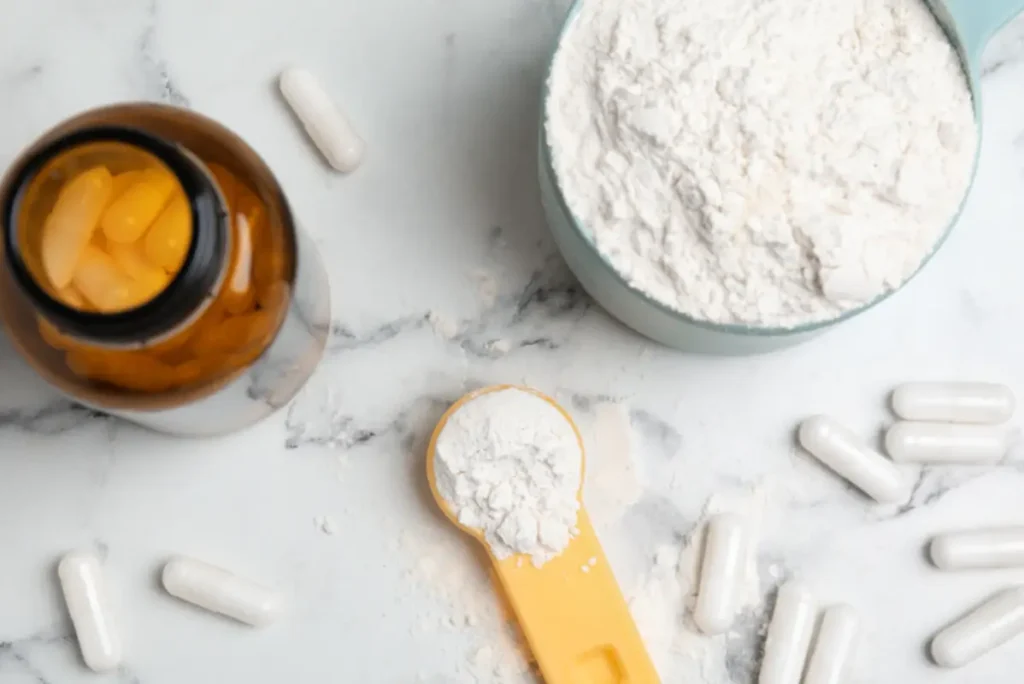
3. Choosing the Right Creatine Form
Selecting the type of creatine can contribute to reducing the chances of experiencing bloating. But there is a catch… Some manufacturers claim that their Creatine form is better because of better solubility. Additionally, when it comes to selecting creatine one of the concerns of creatine users is does creatine Hcl cause bloating?
Although creatine HCL is highly soluble when compared to other forms of creatine, its solubility is never a guarantee that it won’t cause bloating. First of all solubility and absorption are two different things, second – CrM solubility is also good. In many cases with different forms they advise/suggest to take less grams in a serving – which can solve the problem of GI discomfort.
It can, but not because the form is some kind of magical, but because you will be taking less Creatine – and as we said before there is a less chance of having not absorbed Creatine in your tract. Which is the same with Creatine Monohydrate – you can also take less and the result will be the same… but cheaper.
Although there are options to choose from, creatine monohydrate is widely recognized for its effectiveness, safety and minimal side effects, including bloating, making it a popular choice due to research conducted on its benefits. Although we can’t claim that it’s non bloating creatine, if you stick to a lower dosage per day there is a higher chance that you won’t feel bloated.
Are You Confusing Water Inside the Muscles vs Bloating?
When it comes to understanding the effects of creatine supplementation, it is important to differentiate between water retention within the muscles and bloating. They are not the same things and one – bloating – is not nice and can be avoided (not always tho), and the second one – water retention – is actually good and can’t be avoided because it is simply how Creatine works.
Now let’s shed more on water retention within the muscles. When you consume creatine, it is transported to your muscle cells, where it plays a crucial role in energy production during high-intensity exercise.
As creatine is stored in the muscles, it attracts water molecules, leading to an increase in intracellular fluid volume. This increase in water content within the muscle cells can have a positive effect on muscle size.

On the other hand, bloating refers to the uncomfortable feeling of fullness, gassy or swelling in the abdomen. It is often caused by the accumulation of gas in the digestive system or changes in the way the gastrointestinal tract functions. As we said before, not absorbed creatine in your GI tract will still pull water – this time not into your muscles – and might result in GI discomfort.
Symptoms of bloating may include diarrhea, stomach upset, and belching. Factors such as overeating, consuming gas-producing foods, or certain digestive disorders can contribute to bloating.
Creatine water retention will result in increased body weight because it adds an extra pound to your body, while bloating can result in weight loss due to its association with loss of appetite and even diarrhea.
It is not uncommon for athletes and fitness enthusiasts who use creatine to ask – does creatine make you gassy, because they have attributed GI distress to creatine supplementation. Or You might be wondering about how long does creatine bloating last because you are tired of having GI discomfort anytime you take creatine.
The good news is that creatine bloating, if experienced, may not last forever. Once you switch from the loading dose (20 – 25 grams per day, which we advise to skip if there is no specific reason for it) to the maintenance dose, which is 3-5g/day, even splitted across the day, there is a high chance that any GI discomfort caused by Creatine will disappear. The bad news is that it is not always the case for some individuals who need to say “pass” to Creatine supplementation.
Overall, When creatine causes water retention within the muscles, it is a localized effect that primarily affects the muscle cells. This increase in intracellular fluid volume can lead to a fuller and more voluminous appearance of the muscles.
We hope you have understood the difference and we have helped you alleviate any confusion and concerns.
The Creatine We Recommend
For a creatine supplement that will perfectly match your fitness goal, check out Transparent Labs’ StrengthSeries Creatine HMB. The product is highly sought after due in part to its blend of BioPerine, creatine monohydrate, beta-hydroxy beta-methylbutyrate (HMB), and vitamin D. See what all of this does to your body by continuing to read.
Transparent Labs included vitamin D into this product, which is crucial for supporting the absorption of calcium and phosphorus and preserving bone health. It is also essential for the immune system and muscle function.
Each meal provides 12.5 mcg of vitamin, which is roughly 60% of the body’s daily requirement. Vitamin D has also been demonstrated to support the development of muscle and enhance mental clarity.
Your body can handle the 5 g of creatine per serving that comes with the StrengthSeries Creatine HMB. It is gluten-free and free of artificial sweeteners and preservatives. The product has undergone third-party testing because safety is a critical factor in intestinal supplementation.
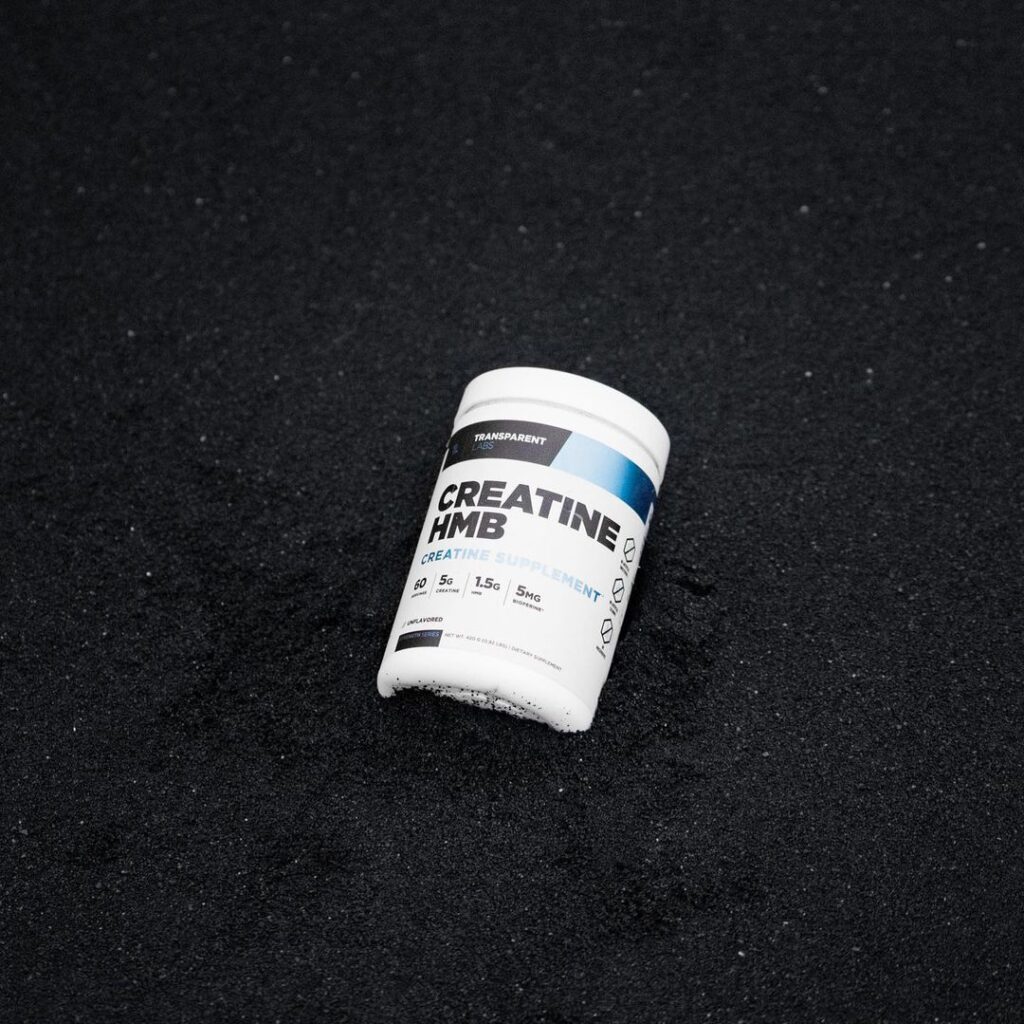
Furthermore, purchasing the product doesn’t have to break the bank because each container has 30 servings at a cost of about $1.68 each. BioPerine is yet another fantastic ingredient in this product. It is commonly used as a bioavailability enhancer, meaning it can improve the body’s ability to absorb and utilize a variety of nutrients and compounds.
Its active ingredient, piperine, has been shown to increase nutrient absorption by inhibiting specific enzymes that break down these compounds in the gut and liver. You can be certain that the muscles will easily absorb enough creatine to help you reach your objective. What more did you require from a creatine supplement that isn’t available here? Definitely worth purchasing
FAQ
Does Creatine Bloating Go Away?
Bloating – Yes it can. Water retention – not really. Supplemented Creatine caused GI discomfort can be avoided in many cases by skipping loading phase, staying with 3-5 grams of creatine per day, and even splitting that dose into 2-3 servings and taking them with meals.
Does Creatine Make Your Belly Bloat?
Yes it might. Creatine consumers often complain about gastrointestinal distress they experience after taking creatine. This is associated with too high doses for them, they consume in a day. Once you stay with 3-5g of creatine a day, even splitting that across the day, there is a high chance you won’t experience belly bloat. Overall, studies show that creatine monohydrate is very safe to consume.
How Do I Stop Bloating From Creatine?
Gastrointestinal tract discomfort from creatine supplementation can be stopped or avoided in many cases by skipping the loading phase, sticking to 3-5g/day, and in some cases splitting that dose across the day. If that does not help, unfortunately you may need to avoid Creatine supplementation – but who knows maybe you have your muscles already fully saturated with creatine ;-).
Conclusion
Creatine is a popular supplement among athletes, it’s known for its ability to enhance athletic performance, improve strength, improve recovery, slightly help with muscle growth, even reduce the risk of injuries and much more. But it has the potential of causing GI discomfort when you take too high doses per day.
Creatine pulls water into your muscles and causes water retention – but it’s not a bad thing. There is a chance that some individuals may experience bloating/GI discomfort when they supplement creatine, but in many cases it can be avoided by managing the dose.
Now you have gotten the answer to your concern “does creatine make you bloated” learn the benefits of creatine and you can differentiate between water retention and bloating. Kindly share with your loved ones so they can also benefit. Lastly, we will appreciate your contribution in the comment section.
Also read:
- Can You Dry Scoop Creatine
- Does Creatine Make You Stronger
- Creatine vs Whey Protein
- Glutamine vs Creatine
- Carnitine vs Creatine
- Creatine Nitrate vs Monohydrate
- Beta Alanine vs Creatine
- Does Creatine Make You Poop
- Does Creatine Boost Energy
Reference:
- Shih-Hao Wu, Kuan-Lin Chen, Chin Hsu, Hang-Cheng Chen,Jian-Yu Chen, Sheng-Yan Yu, and Yi-Jie Shiu “Creatine Supplementation for Muscle Growth: A Scoping Review of Randomized Clinical Trials from 2012 to 2021” National Library of Medicine https://www.ncbi.nlm.nih.gov/pmc/articles/PMC8949037/ (assessed October, 2023)
- Thomas W Buford, Richard B Kreider, Jeffrey R Stout, Mike Greenwood, Bill Campbell, Marie Spano, Tim Ziegenfuss, Hector Lopez, Jamie Landis, and Jose Antonio: “International Society of Sports Nutrition position stand: creatine supplementation and exercise”National Library of Medicine. https://www.ncbi.nlm.nih.gov/pmc/articles/PMC2048496/ (assessed october, 2023
- G Parise et al. J Appl Physiol “Effects of acute creatine monohydrate supplementation on leucine kinetics and mixed-muscle protein synthesis” National Library of Medicine https://pubmed.ncbi.nlm.nih.gov/11509496/ (assessed October, 2023)
- Joseph F. Clark, PhD, ATC “Creatine and Phosphocreatine: A Review of Their Use in Exercise and Sport” National Library of Medicine. https://www.ncbi.nlm.nih.gov/pmc/articles/PMC1319235/ (assessed October, 2023)
- Caroline Rae, Alison L Digney, Sally R McEwan, and Timothy C Bates ” Oral creatine monohydrate supplementation improves brain performance: a double-blind, placebo-controlled, cross-over trial” National Library of Medicine. https://www.ncbi.nlm.nih.gov/pmc/articles/PMC1691485/ (assessed October, 2023)
- Konstantinos I. Avgerinos, Nikolaos Spyrou, Konstantinos I. Bougioukas, and Dimitrios Kapogiannisd “Effects of creatine supplementation on cognitive function of healthy individuals: A systematic review of randomized controlled trials” National Library of Medicine. https://www.ncbi.nlm.nih.gov/pmc/articles/PMC6093191/ (assessed October, 2023)
- Terry McMorris et al. Neuropsychol Dev Cogn B Aging Neuropsychol Cogn. 2007 Sep ” Creatine supplementation and cognitive performance in elderly individuals’ National Library of Medicine, https://pubmed.ncbi.nlm.nih.gov/17828627/ (assessed October, 2023)
- Marina Yazigi Solis, Guilherme Giannini Artioli, and Bruno Gualano ” Potential of Creatine in Glucose Management and Diabetes. National Library of Medicine, https://www.ncbi.nlm.nih.gov/pmc/articles/PMC7915263/ (assessed October 2023)
- Abbie E Smith et al. J Int Soc Sports Nutr. 2007 “Effects of creatine loading on electromyographic fatigue threshold during cycle ergometry in college-aged women” National Library of Medicine” https://pubmed.ncbi.nlm.nih.gov/18039377/ (assessed October 2023)
Why Trust Us?
With over 20 years in Olympic Weightlifting, our team does its best to provide the audience with ultimate support and meet the needs and requirements of advanced athletes and professional lifters, as well as people who strive to open new opportunities and develop their physical capabilities with us.
By trusting the recommendations of our certified experts in coaching, nutrition, dietology, and sports training programming, as well as scientific consultants, and physiotherapists, we provide you with thorough, well-considered, and scientifically proven content. All the information given in the articles concerning workout programming, separate exercises, and athletic performance, in general, is based on verified data. We ensure that you can rely on our professionals’ pieces of advice and recommendations that can be treated as personalized ones which will benefit you and fully meet your needs.
The product testing process is described in more detail here
Author: Jacek Szymanowski
Certified Nutritionist,
M.Sc.Eng. Biotechnology
Performance Architect,
Strength and Conditioning Specialist
With over 30 years of fighting experience, specialization in nutrition coaching for athletes, and expertise in metabolic health and dietary strategies, Jacek offers a comprehensive approach to optimizing your performance and well-being. Backed by a Master of Science degree in Biotechnology, Jacek remains at the forefront of scientific advancements, ensuring that his coaching is always evidence-based and up-to-date.

